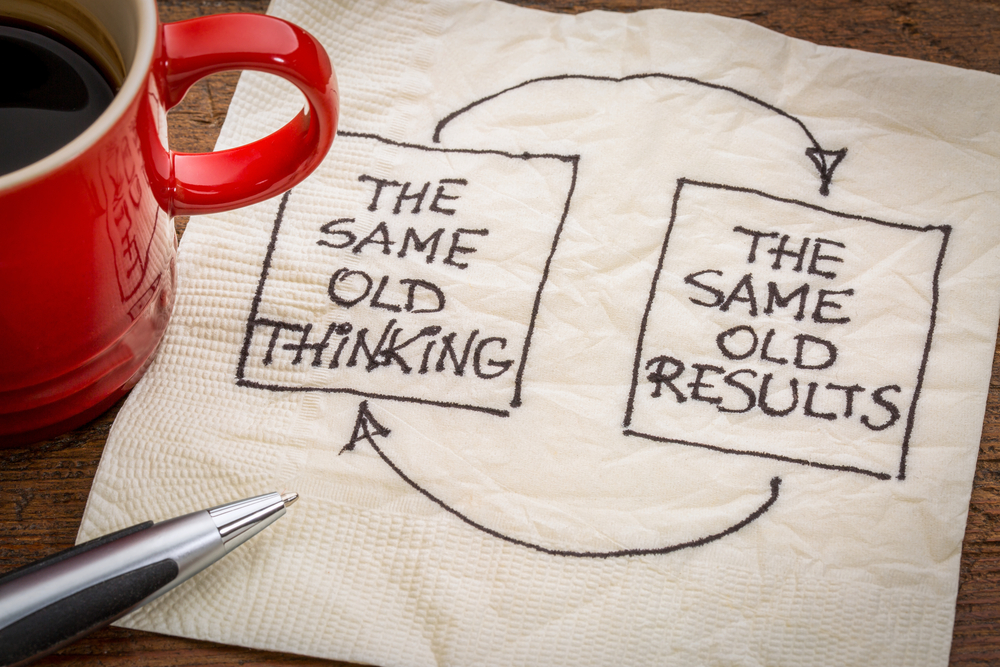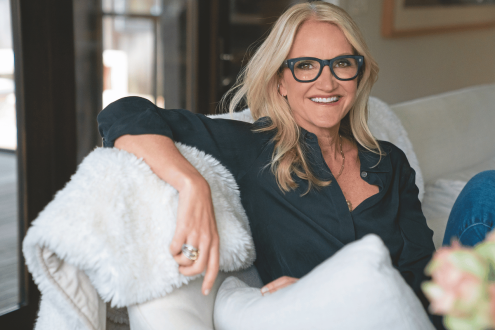Developing a mindset for success
Our mindset has an enormous impact on how we behave and deal with situations. Yet mindsets are not fixed. They are beliefs. We can change our beliefs, and this will determine our mindset.

You know when someone is their positive zone. They exude belief in themselves and their ability to learn. They can thrive during tough times. They are resourceful, flexible and able to deal constructively with setbacks. These are people you want to be around because their behaviour inspires you. They have a growth mindset.
Contrast this with someone who has a rigid mindset: they can be prickly when challenged, be difficult to engage and defensive about adopting different methods. They play the blame game and make excuses when something goes wrong. They will often try scoring points off others to deflect from their own sense of inadequacy. At their worst, such people can suck the energy right out of the room. Dealing with them can leave you exhausted.
Our mindset has an enormous impact on how we behave and deal with situations. The good news is that mindsets are not fixed. They are beliefs that we hold about our given talents, ability to learn, our intelligence and personality. And beliefs can be changed. It takes effort, application and determination and it can be hard. Yet we can choose our beliefs and this will determine our mindset.
Professor Carol Dweck of Stanford University has researched the concept of mindset extensively. In her best-selling book ‘Mindset – Changing the Way You think To Fulfil Your Potential’, Dweck says that it’s not intelligence, talent or education that sets successful people apart. It’s their mindset, or the way they approach life’s challenges.
Through her work, Dweck identified two different mindsets: fixed mindset and growth mindset. Reflecting on the difference can help you understand why you habitually make certain choices as well as reconsider how well these serve you. It can help you reassess the decisions you make and how you choose to respond to situations.
Having a growth mindset means believing you can develop your abilities through hard work, perseverance and drive. People with a growth mindset love to learn, enjoy a challenge and welcome feedback. They deal with disappointment by being pragmatic about what can be learnt from the experience. They are prepared to regroup, rethink their strategies and try again – knowing that effort and application will enable them to improve. Such people develop strong personal resilience and grit which in turn spurs them on to push past obstacles and to eventually succeed.
A fixed mindset is the belief that you can do something well or not. You believe that you are born with a set of skills and talents and you can’t change them. Having a fixed mindset can mean avoiding a challenge, reject useful feedback or feeling threatened by the success of others. A fixed mindset can fossilise you in a fearful and vulnerable state.
“Mindsets are an important part of your personality, but you can change them. Just by knowing about the two mindsets, you can start thinking and reacting in new ways.” Carol Dweck
I would say that working to achieve more of a growth orientated mindset is a much desirable place to be than settling for a fixed mindset. It can help us better cope with change and deal with more constructively with life’s challenges. In today’s volatile and uncertain world with the pressure to be always ‘on’ and digitally connected, working to move from a fixed to growth mindset is essential to our health, wellbeing and happiness.
How to develop a growth mindset
According to Dweck, a “pure” growth mindset doesn’t exist. Everyone is a mixture of fixed and growth mindsets, and that mixture continually evolves with experience. We all have our own fixed mindset triggers. When we face challenges, or receive criticism, we can easily become insecure. This reduces our ability to be constructive and pushes us into a defensive frame of mind.
Here are some simple yet effective steps that you can take to spot and deal with these triggers so that you remain in a growth orientated zone.
Step 1. Monitor that self-talk
Self-talk in a fixed mindset might sound like you are making excuses, blaming others or it is that 3 am in the morning voice that says, “you are not good enough – you don’t have the talent for this”. Learn to spot when this happens. Notice the effect it has on you. Talk back to it with a growth mindset voice, telling yourself feedback is an opportunity to improve, and that you can learn from mistakes. Change your mindset by changing your words.
Step 2. Remember that you can choose your response
Everyone will face obstacles, challenges and defeats throughout life, but the way that you respond to them can make the difference between success and failure. If you have a fixed mindset, you’ll see setbacks as proof that you are not up to the job. Conversely, if you look at them as opportunities for growth, you can develop a plan for action, such as working hard, being flexible, changing your strategy and trying again. How you interpret challenges, setbacks and criticism is your choice.
Step 3. Question your own efforts
Questioning is a key aspect of developing a growth mindset. Reflect on the way you approached a situation or an experience you have had, reflect on a working practice or perhaps a task you have always done the same way and question: Could this be done a better way? How could I improve on this? How could I have dealt better with that situation? The next important step is then to act on the answers to these questions so that you see change and improvement.
Step 4. Embrace feedback with an open-mind
Seek out opportunities to gain honest critical feedback. If you are open to other’s views and ideas, they are more likely to share these with you. Welcoming feedback also encourages people to want to help and support you as you seek to improve.
Step 5. Seek support from someone you trust
Buddy up with someone who can mentor you and support your efforts to learn. This can make a big difference to your efforts to stay in the growth zone. Having someone to share ideas and strategies for overcoming obstacles, can really help with the motivation to push on.
Conclusion
Our mindset has a direct effect on who we are today and who we will become tomorrow. A growth mindset says hard work and perseverance coupled with a flexible and resourceful attitude will help you to win through. We are the CEOs of our own mindset – choose wisely for what we think is what we become.
Beverly Landais PCC
Certified Personal & Team Coach: enabling people to be at their resourceful best
We live in an ever-changing dynamic world. At best, this can be exhilarating and provide excellent opportunities for personal growth. At worst, it can be exhausting and stressful as you try to do it all, which can lead to the feeling that you are doing nothing well. Maybe you are in such a situation? Perhaps you have reached a point where you long to create the life that you want rather than the one that is happening? If so, I may be the right coach to support you. My purpose is simple. I work with people to help them be at their resourceful best. I bring all of my expertise to the service of my clients. My skill set includes 30 years of experience in business, including board level. As a Professional Certified Coach and Positive Psychology Practitioner, I can help you to think your options through, make better choices and do the things that promote wellbeing, bring personal as well as professional satisfaction and make you happy. I am particularly skilled in supporting those who are at a crossroads in their life. My coaching approach can help you gain a clear understanding of your values, motivators, drivers, strengths and consider the impact of blind spots – and what you can do to mitigate these. I work via video calls, by phone and email. Should you wish to arrange a 30-minute complimentary discovery session, please contact me via connect@beverlylandais.co.uk



